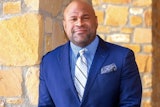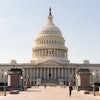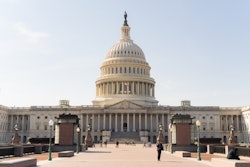Penn State Black Caucus Calls School’s Response to Racism ‘Halfhearted’
STATE COLLEGE, Pa.
The Penn State Black Caucus called on students, administrators and university President Graham Spanier to assure the safety of minorities on campus and claimed the school takes a halfhearted approach to racial tensions.
“This is about students’ rights, students’ welfare,” caucus President Ed Smith told several hundred students at a rally last month. Smith told the crowd that in February a man spewed racial insults and threats at him from a dorm until campus police arrived.
“We’ve already received some information and we’re tracking down those leads,” university police Supervisor Dwight W. Smith said.
Penn State spokesman Tysen Kendig defended the university’s response to such complaints, saying that police and university staff have held floor meetings with students, security has increased and the university has distributed materials to encourage a conflict-free environment.
Student complaints of a racist and homophobic climate have increased at the campus over the years. Of 41,289 students, Penn State has 1,664 Black students, or about 4 percent. Minority students make up 12 percent of the student body.
There were eight reports of bias-motivated crimes on campus in 2004, up from four in 2003, according to police records. Two of the 2004 reports were described as anti-Black. The others were designated as anti-Semitic and anti-homosexual.
So far this year, the campus has logged three reports of bias-motivated crimes. Two were designated as racially motivated, including last month’s incident. The other was listed as anti-Semitic.
In December 2003, the caucus demanded that the chairman of the university’s College Republicans resign after he placed photos on his personal Web site of a White man in blackface and another with a Ku Klux Klan reference.
In April 2002, some students received racist and anti-homosexual e-mails. In spring and fall 2001, several students received racist letters, some containing death threats. Black Caucus leaders said they plan to outline their demands for change and present them to the university, which Smith said has failed “to create a systematic change in climate.”
Not all students agree that the school has a serious discrimination problem.
“No one really cares,” said Bridgette Brown, a junior. “Even as an African American, I’m not talking about it all the time. It’s not that there’s no racism here, but it’s not concentrated here any more than anywhere else in America.”
— Associated Press
© Copyright 2005 by DiverseEducation.com















